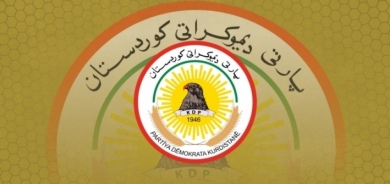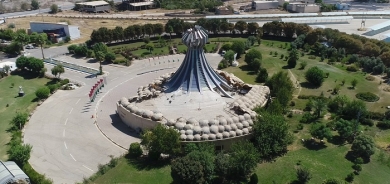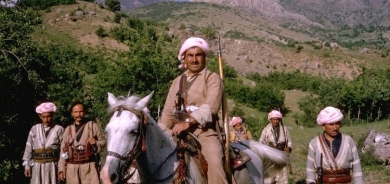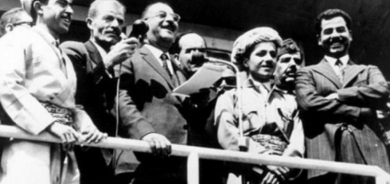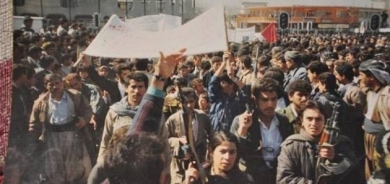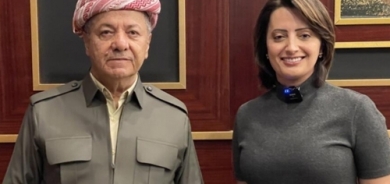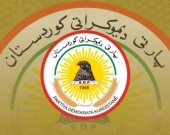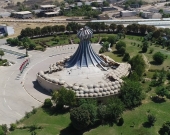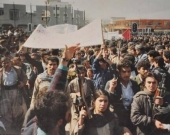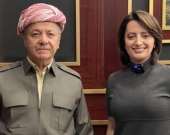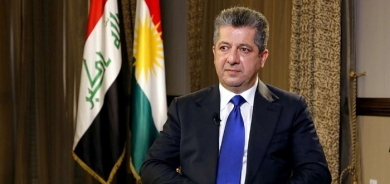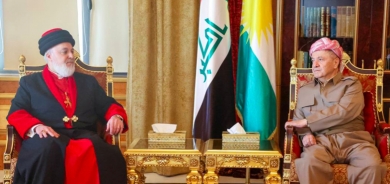People and Government: Continuity of Relations between both and their Interactions
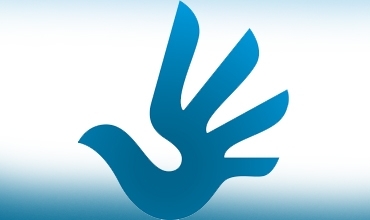
In the developing countries, often the process of communications between people, government and institutions are in complicated and unbalanced conditions, and the type of communication is not from an honest source. So, through the reaction of different perspectives in the society a public opinion does not shaped so as to allow continuous relation between people and the government, but results in more isolation and decrease of political participation rate by the people.
Regarding this issue we contacted Mr. Professor Peter R. Burbridge, professor of developments in the Newcastle university and he has been working with US agencies and international bank in the developing countries, the professor Burbridge responded to our questions in an exclusive interview to GULAN magazine as the following: "Basically; what you looking for is a balance between trust on the part of people and the people who govern them. So, the governed people must feel their interests and values are respected by those who govern them, and if that trust is broke up then you get separation between practicing government and the people as well. That is the big problem, maintaining that balance with trust and responsibility. There are governments which act on behalf of the people. They think the reasonable reason or example of the government represents the interest of the people and also has a very high sense of responsibility. For example in North Korea, the link between the people and the people who are ruling them, which is government, seems very strange for the people from the west, they don't quite understand how that government functions to the best interest of people they serve, because there seems to be huge separation between the benefits of those people who are in the government and the people who are being governed. Sometimes there are major weaknesses in the democratic societies; you don't have to go away far in North America sometimes to find a government but sometimes people ruled by elite that have almost no connection to the democratic population they serve. If the people are not satisfied in the democratic situation they perhaps have more chance to change the government to bring it back in to what they feel that respects broader society. That comes down to individuals in the governing party, government is really that balance between those who are governed and those who observe responsibility on their behalf, government is the quality in a way which all those in society are carried out with the respect to the will of the people, that is a very delicate balance, in many cases in democratic government you may have a very strong party from one side and a weak party in opposition, so they are not the checks and balances in the system, so many of the people in the democratic society may feel very less interested on what they been represented by the second party, and they don't think that their interest is being served by the more powerful party. So there is often a position where people in power can do what they wish without fear the combination until the last periods of election comes about. So there is a highly observed government that has platform or agenda they want for true because they think that is the best way to solve the nation's problem, but they may not necessarily represent the majority views, for example in Britain we had a government in the past that had less than 40 percent of the public vote but nevertheless they became the ruling party and they thought they had a mandate to govern without necessarily having full support of the people they are governing. So in certain democratic societies you will get periods in which there is imbalance of power between people and people who are governing and that power balance is often not changed until there is a new elections".
Regarding the awareness of the people and accountability of the government and its reactions with the government so that the government will responds to the demands of the people, the professor Burbridge added: "Some of the elements you need to put in place are well informed people and that people really understand what democratic process means, because in the societies that have strong governments people often feel they don't really have freedom of choice, and if given that freedom of choice they often don't know how to use it, therefore you need to inform people to know what power they have and what choices they can make, and how those choices will affect their life, they cannot make their choice therefore they don't know how to vote and whom to vote for, because that balance of trust and information has not yet been achieved. In many developing societies an imbalance in power between those who are elites, well educated, well informed, know how to run democratic government system and those people who are not educated and not well informed do not trust the people who are governing them. Therefore there is a lot of time and effort required to train people how to use the democratic process not only to individual but the broader society's interest. So it is no good to say we have American style democracy if people are not trained for or how to use it or not well informed. They have to have a lot of information to make the right choice. I certainly believe there should be economic benefits to the people so that they can see one system they benefit from and one system perhaps not as effective. So in that sense the economic issue is a critical issue in terms with interpreting the future for individuals in a family, about rebalancing economical forces for the benefit is distributing fairly with the society, then you will always have this equilibrium between those people who are better educated have access to technology and they will pick the opportunities for other people do not see or not able to utilize their economy situation. Rule of law is important for several reasons, one reason people feel equal treatment of poor people and rich people etc. everybody is equal within the law, which is one principle. The second point is that the law must be seen as a way of addressing problems and issues if there is perhaps a dispute in official representative. Then you have to look at what you mean by law? Do you mean a written constitution and that constitution clearly defines rights of the individual on the level of state. Well perhaps you think about Sharia law which is a very different part of law that has both principles of good and bad and principles of punishment for bad and etc… So; in that sense, it depends on the legal system you're working at, and there is no perfect system for all societies, so there is no way to say American style constitution can necessarily be perfect for a developing society in Africa or Asia. You have to build upon a legal system that is known and trusted by people. And again when you talk about free markets the law that the people have to think about in the free market situation extend beyond the individual ratio, because of protocols and standards that goes across national boundaries, therefore it may have different interpretation and different impact in different societies, so in that sense there is always going to be a period, perhaps long period, between traditional tribal law, Sharia law, Western law and European law and regulations. So free market has to function on even plane fields, laws in Russia, in Iran and in China is approximately acting the same way, when they don't act in the same way, then you get unsatisfactory representative of individuals or nation's interest at the international level. So the real challenge is harmonize the existing law system in a society and the systems will have to interact with, in trading, social and cultural changes...etc. These issues are set at the international level by agreements and protocols and norms among international groups. You can't expect someone from Indonesia to understand and to be able trade on equal basis with European commission if they don't have a similar social law, so there is a learning process before the free market can really effectively work beyond local or national situation".
Ground for Creating Communication between Ruling Elements
"Government completes the duties of governance" quoted by Eduardo Missoni. Meaning; all the elements shaping governance are all these aspects that react with each other in the society atmosphere and governance system manages their communication ground. Regarding this issue we contacted Professor Siri Gloppen, research director at Michelsen institution for development and justice in Norway and responded to GULAN magazine in an exclusive interview as the following: "Governance and People are two main elements in any society, but the relation between these two elements is not often balanced and people always feel unsatisfied with governance. The question is, in your view; how the relations between governance and people are organized?
The challenge is to create a system where those who are in government seek to govern for the benefit of the whole society and not a small elite– ant that they are seen to do so. Several factors may contribute towards creating relations of shared interest and trust between the people and those who govern them.
- The level of social inequality is very important. If the governing elite also represents a social and economic elite (either because they are drawn from the elite or because the positions are generously rewarded so that they turn in to the elite) this is very difficult to achieve. If political positions are like any other job so that people do not have (or are seen to have) self-interested economic motives for wanting such a position, it is easier to build relations of trust. And there are fewer reasons for politicians to seek to stay in their positions by all means. Such issues of political economy should not be underestimated.
- Opportunities for meaningful participation by all who are interested - and a perceived responsiveness by those in government is very important. This requires openness with regard to information (including a free press), possibilities for input in early stages of decision making-processes, and active steps to enable different groups to make a contribution -- including vulnerable and marginalized groups. Participation can go beyond elections, including hearing processes in relation to legislation and policy making and participatory budgeting processes (with Porto Allegre in Brazil as the most famous example).
- The existence of accountability mechanisms are also important. Again, transparency and a free press is important, but also real possibilities for replacing representatives who are corrupt or do not perform.
- Local democracy may also be helpful in making people feel closer to government, although minorities may be more at risk at local level. In a simplified way, "people's government" as understood in the traditional socialist states defined themselves more as "government for the people" (where the focus is less on who decides that that what is decided is "right" in accordance with a socialist ideology which puts emphasis on the welfare of all, social security is here more important than freedom). In democratic systems the core idea is "government by the people" - (with focus on who decides. This is based on the belief that if the people decide it will be the best society for all – freedom to participate in political decisions is here seen as the key also to social security).
Of course we know that both systems in many cases have problems in practice and do not function according to theory''.
The points professor Gloppen mentioned regarding the relations between governing elements are important, but in the developing countries instead of stepping forward, it produces corruption and lack of sovereignty of rule of law, regarding this point, professor Gloppen also added "I agree in your observation that a number of democratization processes have produced electoral democracies with poor social and economic performance. As a result of the growing realization that democracy in itself will not necessarily produce good governance, we also see a growing disenchantment with democracy as such. Scholars and development practitioners have started questioning whether chances of establishing a working democracy is better if strong governing institutions/ good governance is in place prior to democratization (and, some would argue, perhaps more difficult to establish in a context of democratization)
Why is it that democratic regimes fail to produce good governance? This can have a number of causes
* I think – as noted above – that high levels of social and economic inequality generally makes good governance difficult. Those who govern will normally belong to the elite - or will tend to use their positions to get there - and the more unequal a society is, the more they will be in a situation where they have little in common with ordinary people. Their interests are not the same as those they govern -- they do not use public hospitals or send their children to government schools, and thus stop having a personal interest in many of the institutions they build and sustain. Or they have other interests in them – for example the political elite may see the police/army/justice apparatus primarily as institutions to protect them from internal unrest, not as providing a service to the people. In less unequal societies, when politicians act in their own interest, this do not to the same extent undermine good governance as seen from the rest of society.
* In many new democracies economic conditions are also very challenging compared to more established democracies — there are, simply put less resources for delivering governance, which may make it t more difficult. The population is often also less educated, which also makes it more challenging-
* Another factor that may prevent good government is weak accountability institutions – poor governance is not effectively sanctioned. Elections every 4 or 5 years is not enough to secure accountability. Transitional phases represent great opportunities for those who are in a strong position – politically and economically — to take advantage of the situation and consolidate their position and for example convert political resources into economic capital. And in a situation with great inequalities, an unregulated market economy will present further opportunities for enrichment and deepen inequalities. Often the "new haves" will also be very well politically connected and also able to capitalize on political connections and for example prevent anti-monopoly legislation. To prevent this from happening, I think it is crucial to avoid rapid liberalization, to have much stronger barriers against "crony-liberatization" where assets for example are transferred to political loyalists (which in the next instance also undermine accountability relations). Most understandings of democracy presupposes a dialogue between the people and those elected to positions of power, but this is most central in the deliberative democracy tradition (spearheaded by Jürgen Habermas), where public deliberation and considered judgment is seen as the very core of democracy and a way to reach the best decisions.
Many governments have put in place institutions to encourage dialogue around policies and laws (consultation processes, public hearings), including in on-line forums, and some have introduced participatory budgeting or citizens' scorecards to follow up on implementation. Still this could be better utilized and lot more could be done. Not least in terms of developing capacity among the more marginalized parts of society so that they can participate in an equal and meaningful way, and with regard to developing better mechanisms for taking public opinion into account, including though more direct encounters between elected officials and different parts of the public around difficult and important political issues.”
Sovereignty of rule of law is important for democratic society unlimitedly which manages social duties legally, regarding this issue, the professor Gloppen expressed her opinions and also added "Rule of law is very important for building democracy. It is crucial to securing personal liberties (both in democratic and non-democratic regimes) and to preserve the democratic process itself through protecting civil and political rights and the rules of the political process. Without rule of law good governance is not possible. But still, the rule of law — even when it is implemented – is not enough to safeguard democracy. It is important to not just look at the rights provisions in the constitution, but also look at the way the democratic system is composed – the division of powers, and in particular the power of the executive. So, while a democratic system cannot function without the rule of law, it is also not sufficient, and it is important to see beyond the "parchment barriers.”
Translated by: Sheban Ferhad

